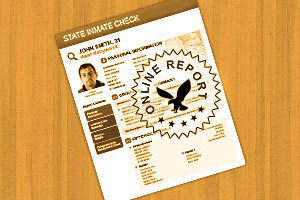Alabama Public Records
The mission of Alabama State Records is to grant every person the right to detect, obtain, preview, and examine state public records in accordance with Alabama’s Public Records Law. This legislation cites that all public records are presumed to be available to all public citizens for investigation.
The main goal is to aid all members of the general public in using their right to access Alabama state public records in an easy, efficient, and concise manner. This can be done without the requester having to specify a “need to know” or reveal any sensitive personal information.
Alabama State Records maintains information about publicly available records, including criminal records, court records, and vital records, as well as over 45 million transparent public records.
Are Alabama Records Public?
According to the Alabama Open Records Law, most government-generated records are open to the public. Individuals interested in these records can request inspections or physical copies of all non-confidential records at the applicable custodian agencies. Alabama law defines public records as information made or received by public officers as required to transact public business. The definition includes records created by officers of the state, a county, municipality, or other subdivision of government (Ala. Code § 41-13-1).
Records can be obtained by making a public record act request to the concerned record custodian or conducting a public data search using any of the self-service options available at their offices. Third-party sites also offer paid and free public data search options to interested members of the public.
What is Considered Public Information in Alabama?
Alabama public records include:
- Public court records
- Public sex offender information
- Public Alabama divorce records
- Public inmate records
- Public property records
- Public bankruptcy records
Members of the Alabama public must note that while all public records are available to requesters, state law does not recommend maintaining public records in perpetuity. According to the law (Ala. Code § 41-13-5), public agencies may destroy or dispose of public records without importance or significance. Alabama allows record custodians to recommend the destruction of such records to the State and Local Government Records Commissions if considered necessary.
How Do I Find Public Records Alabama?
The Public Records law gives citizens the right to obtain public records Alabama agencies generate or maintain by submitting official requests. However, the law does not require government bodies to respond to these requests. Nonetheless, interested record seekers may find public Alabama records by taking the following steps:
- Identify the desired record
Requesters may start by identifying the desired record type by the available information. For instance, persons looking for information on married persons must obtain a marriage license or certificate. Similarly, information on a criminal charge is obtainable by requesting court records from the clerk at the overseeing court and vital records are obtained from the state department of health or county vital records office.
- Determine the applicable agency
Identifying the record helps determine the applicable custodian agency. Alabama arrest records are available at the arresting police department or sheriff’s office, while appraisal and assessment records are at county Department of Revenue offices.
- Create a request
The Public Records Law does not specify that requests must be written or oral. However, record seekers are advised to ensure that requests provide exhaustive descriptions of the desired records. Written requests may also make it easier for the custodian to find the requested record. Regardless of the agency, requests for public Alabama records should contain the record type, the information on the record, the requester’s name, and the requester’s contact information.
- Review and submit the request
Record seekers must review requests to ensure that the provided information is accurate. After the review, requests should be submitted using methods allowed by the organization. In most cases, public agencies allow in-person, mail, phone, fax, and online submissions.
Requests may also cost varying fees depending on the submission or expected delivery method. For instance, online payments may require additional processing fees that may not apply to mail requests. Furthermore, mail requests may have longer processing times, making it the least-preferred option for urgent requests.
Using Third-Party Sites to Find Alabama Public Records
City Records
Public city records may also be accessible from third-party websites. These non-government platforms come with intuitive tools that allow for expansive searches. Record seekers may either opt to use these tools to search for a specific record or multiple records. However, users will need to provide enough information to assist with the search such as:
- The name of the subject involved in the record (subject must be older than 18 or not juvenile)
- The address of the requestor
- A case number or file number (if known)
- The location of the document or person involved
- The last known or current address of the registrant
Third-party sites are not sponsored by government agencies. Because of this, record availability and results may vary.
Public Records
Public records can also be accessed from third-party websites. These third-party public records aggregate websites offer search services that are non-geographically limited, making the search result expansive and typically straightforward. However, users will need to provide enough information to assist with the search, such as:
- The name of the subject involved in the record as long as the subject is not a juvenile
- The last known or location of the record subject
Third-party public records search websites are not government-sponsored services. Therefore, the availability and accuracy of results can vary.
How Do I Look Up Public Records in Alabama for Free?
Because the Alabama Open Records Law does not provide for fee waivers, there is no statutory backing for free copies of public records. However, Alabama public agencies may provide free access to persons looking to inspect non-confidential public records.
Interested members of the public may conduct a free public records search by visiting the relevant agency. For instance, the Alabama Law Enforcement Agency maintains a searchable online sex offender registry with free information on registered sex offenders. Similarly, residents can use the Alabama Department of Corrections online registry to search inmate records by Alabama Institutional Serial (AIS) number, first name, or last name. Requestors may also query the county clerk's office or county recorder’s office in the relevant judicial district and utilize the self-service computers available in the office (if applicable).
Alabama began keeping public records in 1908 and started creating records for its 67 counties then. Record keeping has been transitioning to a digital medium over the past 30 years, and the availability of online records is becoming the standard for record access organizations, both government and third party. This helps to ensure that Alabama abides by the commitment of the United States of America to remain a fair and just society for all.




